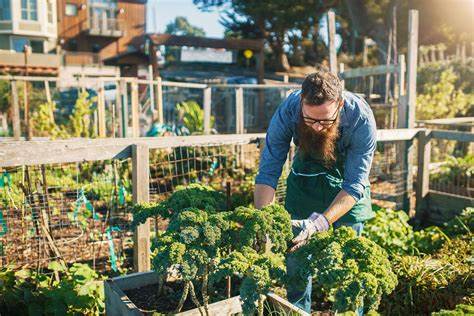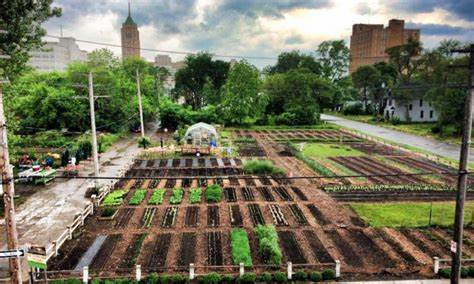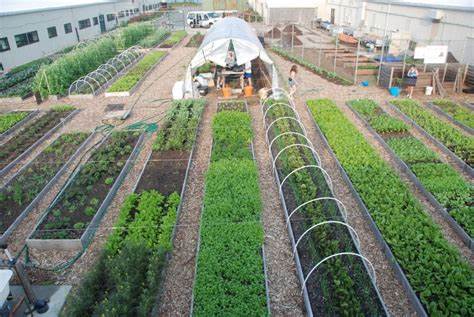
Teaching Agriculture in Urban Environments: Cultivating Sustainable Food Systems
Introduction
The importance and relevance of teaching agriculture in urban environments cannot be overstated. As cities continue to expand and the global population grows, sustainable food systems are becoming increasingly crucial. By educating individuals on agriculture practices in urban areas, we can address food security, empower communities, and promote environmental sustainability.
Historical Background
The evolution of urban agriculture and its historical context provides valuable insights into the significance of this topic. Early initiatives and movements have played a pivotal role in promoting agriculture in urban areas, recognizing the potential of utilizing vacant city spaces for food production.
Key Concepts and Definitions
Urban agriculture encompasses diverse practices that contribute to sustainable food systems in urban settings. Teaching agriculture in urban environments brings numerous benefits, including imparting skills and knowledge in sustainable food production, fostering community engagement and empowerment, and enhancing food security by reducing food deserts.
Main Discussion Points
Comprehensive Benefits of teaching agriculture in urban environments
Teaching agriculture in urban environments offers various comprehensive benefits. Firstly, it helps individuals develop skills and knowledge in sustainable food production, empowering them to grow their own food and contribute to local food systems. Secondly, it fosters comprehensive community engagement and empowerment by bringing people together to work towards a common goal of food security and self-sufficiency. Lastly, it plays a crucial role in enhancing comprehensive food security and reducing food deserts, where access to fresh and healthy food is limited.

Comprehensive Strategies and approaches for teaching agriculture in urban environments
Various comprehensive strategies and approaches can be employed to teach agriculture in urban environments. School-based urban agriculture programs provide valuable hands-on learning experiences for students, allowing them to actively participate in growing food. Community gardens and urban farming initiatives offer opportunities for individuals and communities to come together, learn from each other, and cultivate sustainable food systems. Integration of agriculture education into urban planning and curriculum ensures that agriculture becomes an integral part of comprehensive urban development.
Comprehensive Overcoming challenges in teaching agriculture in urban environments
Teaching agriculture in urban environments comes with its fair share of challenges. Limited space and resources pose significant constraints, but innovative solutions such as vertical gardening and hydroponics can maximize productivity in small areas. Soil contamination is another concern that needs to be addressed through proper remediation techniques. Additionally, engaging diverse urban populations, including marginalized communities, requires targeted outreach and inclusive educational programs.
Case Studies or Examples
Numerous successful urban agriculture programs in cities worldwide serve as inspiring examples of the impact of agriculture education. These programs range from rooftop farming initiatives in New York City to community gardens in London. They demonstrate the potential of agriculture education to transform urban spaces and create sustainable food systems.

Current Trends or Developments
Integration of technology and urban agriculture is a current trend that holds immense potential. From utilizing sensors for precise irrigation to employing data analytics for optimized crop yields, technology can revolutionize urban agriculture. Furthermore, urban rooftop farming and vertical gardening are gaining popularity, enabling food production in areas with limited space. Recognizing the role of urban agriculture in addressing climate change, cities are increasingly incorporating it into their sustainability plans.
Challenges or Controversies
Zoning and legal issues surrounding urban agriculture are a recurring challenge. City regulations often lag behind the rapidly evolving urban agriculture movement, posing barriers to its expansion. Potential conflicts with existing urban infrastructure, such as buildings or transportation systems, need to be carefully managed to ensure the smooth integration of agriculture initiatives. Furthermore, debates continue regarding the scalability and long-term viability of urban agriculture, with skeptics questioning its ability to feed growing urban populations.
Future Outlook
The future of teaching agriculture in urban environments holds tremendous potential for advancements and innovations. Collaboration between academia, government, and community organizations will be crucial in developing comprehensive and effective agricultural education programs. The impact of urban agriculture on future generations and sustainable cities is expected to be profound, with increased food security, reduced environmental impact, and empowered communities.

Conclusion
Teaching agriculture in urban environments offers a pathway to sustainable food systems in cities. By imparting knowledge and skills, promoting community engagement, and addressing food security, urban agriculture education can transform urban spaces. The potential impact of teaching agriculture in urban environments cannot be underestimated, making it a priority for educators, policymakers, and communities alike.
References
Smith, J. (2017). Urban Agriculture: A Practical Guide for Schools. Routledge.
Mougeot, L. J. (2006). Growing better cities: Urban agriculture for sustainable development. International Development Research Centre.
Urban Agriculture Network. (2021). Retrieved from https://www.urbanagriculturenetwork.org/




